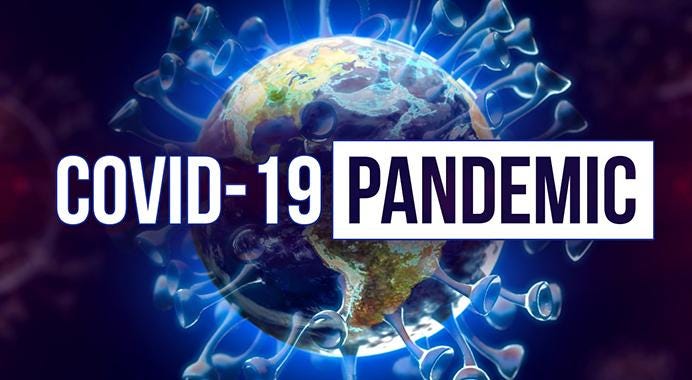The COVID-19 Experience
Some perspective after dealing with the disease that's made the headlines
MGN Image
This past week I tested positive for COVID-19.
I had developed symptoms that I thought were bronchial the afternoon of Jan. 6 and the only real issue I had was not getting enough sleep because I would get congested. Otherwise, I never had a fever, had a slight but not nagging cough, a runny nose for a couple of days, and a headache for one day that never came back.
Each day my symptoms would improve, but at night, the congestion that wouldn't let me sleep came back. I finally called the doctor after five days, then the next day, went in and tested positive.
By that point, the symptoms were fading so much that I didn't have to quarantine. Still, I felt a little embarrassment for having assumed that lack of a fever meant it wasn’t anything to worry about.
However, I can only speak to my own experience as far as the symptoms go. I got the two-dose series of Moderna nearly a year ago, but haven't been boosted. I can't say for certain whether or not a booster would have helped. In fact, I can't say for certain what did or didn't lead to me getting COVID.
I was told to take Vitamin D, Vitamin C and zinc (the latter two I had been taking for several days) but, as of now, the pills to treat COVID-19 haven't been made available to the public (at least, as far as I know). Even then, I'm not sure if I was at that point that it would have been necessary to take it.
Of course, this is just my experience with COVID. I can't say for certain what other people will experience or what methods they try will or won't lead to them getting it. I do think Vinay Prasad is on to something, with his belief that people can’t avoid COVID forever and we should re-examine policy. However, I’ll say it’s possible some people will get lucky and never get infection.
Regardless, my point is that I can only speak to my own experience and can't speak to anyone else's. Nor can I say that if I had done certain things differently, I would have been in a better or worse position.
The problem I see is that too many people speak with certainty -- and I suspect, in many cases, it has less to do with personal experience and more to do with where they stand in the culture wars.
But nobody can speak more definitively on what does or doesn't work than I can. They can talk all they want about science, but science isn't about certainty. Science is a process, in which one should see previous wisdom as useful, not absolute, but that evidence will give you a better idea about things.
I'm not looking for anyone's sympathy (though I'll never be unhappy about somebody wishing me to get well soon) but I am looking for more people to practice empathy on a daily basis. You don't have to agree with what's the best route to take, to recognize that people have different life experiences and to keep your perspective.
As for me, I went through this the same as I went through other experiences: A little older, a little wiser, promising to be more aware next time, but no guarantees that will stick, because something else I might not have considered comes into play.
If you've had a bad experience with COVID, I'm sorry you did. If your experience was minor, I'm happy it wasn't worse. Just don't pretend your experience is the same as mine or anyone else's. Don't scold or shame either way -- be good to one another.



